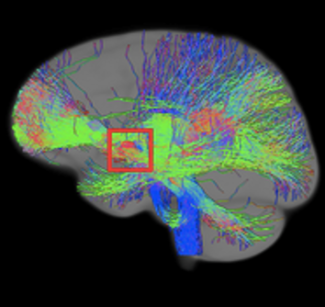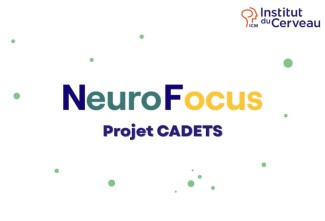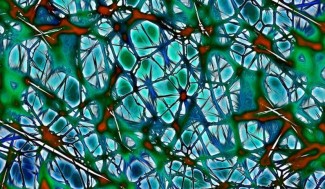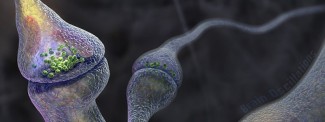Although there is still no cure for Tourette’s syndrome, there are several treatments available for patients to alleviate their tics and associated symptoms, and help people affected by this syndrome to improve their day-to-day life.
Treatments for Tourette’s syndrome
Although there is still no cure for Tourette’s syndrome, there are several treatments available for patients to alleviate their tics and associated symptoms, and help people affected by this syndrome to improve their day-to-day life.
Patient care is multidisciplinary, requiring a team of specialists who help to manage the different facets of the disease. The team typically consists of neurologists, psychiatrists, neuropsychologists, clinical psychologists, speech therapists and occupational therapists. It also includes social workers, whose role is to adapt the patient’s educational or work environment and minimize the psychosocial consequences of the disease and any impacts on their education, such as repeating school years or dropping out of school, or losing their job.
Multidisciplinary management of the disease allows people with Tourette’s syndrome to benefit from complementary strategies, beyond medication, to overcome the difficulties they face in everyday life.
Firstly, cognitive and behavioral therapies allow patients to significantly reduce or eliminate tics through exercises practiced very regularly over a short period of time. Practicing these exercises aims to break the link between the urge the patient experiences before the tic happens (premonitory urge) and the tic actually happening, so that the urge eventually disappears. There are currently two scientifically approved techniques. The first has been widely used in the English-speaking world for more than thirty years, and involves introducing a tic-incompatible movement (a ‘competing response’) that the person makes as soon as they feel the urge; this is about habit reversal. The second, developed in Europe more recently, has the same objective, instead using ‘third-wave’ methods, namely mindfulness, acceptance and mental imagery. The results achieved using this second technique seem even more promising, but fewer scientific papers have been published on it. These techniques are, unfortunately, still not widely understood by professionals in France. One of the center’s aims is to share them with a wide network of professionals using regular training sessions.
In addition, psychological support is often very beneficial for these patients, particularly for young patients, to boost their self-esteem and coping strategies so that they can live more comfortably with the symptoms of the disease.
If the patient has associated learning disabilities, speech therapy and/or occupational therapy are essential to support patients with their schooling and maximize their life chances.
Finally, social workers can provide essential help for many patients, enabling them to access vital information about educational or professional adaptations, about help available if patients have difficulty accessing work, and support in accessing care.
If behavioral and cognitive therapy is not enough, it can be supplemented by taking serotonin reuptake inhibitors.
Pitié-Salpêtrière hospital is home to France’s specialist Tourette’s syndrome center, which is coordinated by Dr Hartmann, neurologist at Pitié-Salpêtrière hospital and researcher at Paris Brain Institute. The center offers patients multidisciplinary care.
Professor Yulia Worbe, neurophysiologist and researcher at Paris Brain Institute, is developing and using innovative methods for recording abnormal movements to refine the differential diagnosis of Tourette’s syndrome for optimized patient care.
Virginie Czernecki and Julie Moulin are developing behavioral therapies in France for the treatment of tics, such as exposure and response prevention (ERP) and habit reversal.
The team regularly invites patients and their families to participate in this research. If you would like to take part in research protocols, as a patient or as a healthy volunteer, please contact our clinical research manager, Mrs Anna Kupniewska: anna.kupniewska@aphp.fr
Personalized multidisciplinary treatments
Beyond medication, multidisciplinary management is essential for patients with Tourette’s syndrome. Psychological support is very important, so that patients can talk about the difficulties they face each day, particularly when they are young, and try to find solutions. Mindfulness and relaxation techniques can also be beneficial for people with Tourette’s syndrome. Speech therapy also forms part of managing the syndrome, and can be very beneficial for vocal tics and learning problems.
Deep brain stimulation (DBS) offers great therapeutic promise for the treatment of drug-resistant tics. The surgery option is proposed by a multidisciplinary team on the basis of international and national consensus criteria, which are constantly evolving.
The researchers and clinicians at Paris Brain Institute have pioneered work on the use of deep brain stimulation in Tourette’s syndrome.
At Paris Brain Institute
- Two research teams are working closely with the hospital’s specialist center on deep brain stimulation projects for Tourette’s syndrome:
‘Experimental Neurosurgery’ led by Dr Carine Karachi and Brain Lau
The results of research by these teams found that stimulating the anterior part of the internal globus pallidus, a structure of the basal ganglia, had a beneficial effect on 16 patients with treatment-resistant Tourette’s syndrome. A second study of 185 patients receiving deep brain stimulation treatment for their Tourette’s syndrome uncovered positive new evidence for using this technique after one year, despite variability in the results. The challenge now is to monitor the longer-term effects.




